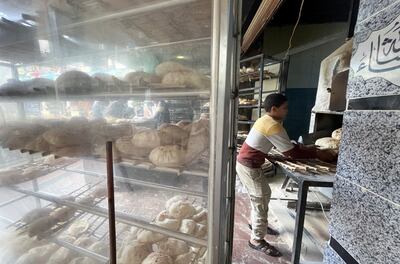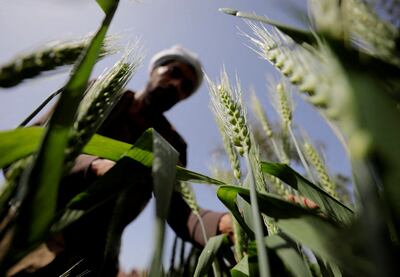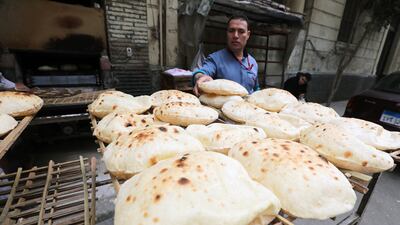Egypt’s government is to control the price of “free market” bread on which nearly half the country’s 102 million people depend – and to slap heavy fines on merchants who sell it above the set price.
The North African country is facing a potentially destabilising rise in food prices.
The move, expected within days, is one of several measures taken by the government to try to minimise the effects of the Russia-Ukraine war, which have caused the price of food and oil to surge globally.
They include a three-month ban on the export of essential foodstuffs, including wheat, raising the domestic price of gas and tightening the monitoring of retail food markets to prevent hoarding.
A court ruling on Saturday granted the government the right to shut down bakeries for up to three months if they breach the price regulations or specifications of bread.
Bread is the staple for most Egyptians, 60 million of whom buy it cheap under a state-subsidised food care system.
The remainder of the population consumes the free-market variety that is larger, of better quality and more expensive.
The free market bread is available for sale virtually everywhere across the country, on pavements, at small grocery stores, supermarkets and outside bus stops, metro stations and government buildings.
Reflecting its importance, the Arabic name for bread in the Egyptian vernacular is “eish,” which means life or livelihood. The flat variety is the most popular among Egyptians.

President Abdel Fattah El Sisi, the driving force behind Egypt’s economic reforms, has chaired a series of meetings over the past three weeks that were dedicated to reviewing the effect on Egypt of the Ukraine war, particularly food prices.
On Saturday, the Egyptian leader sought to gauge the effect of higher food prices on ordinary citizens in Cairo, having impromptu chats with about six people while touring projects to overhaul the ancient part of the city.
Egypt was the world’s largest wheat importer in 2021 at 13 million tonnes. Wheat prices have risen from about 8,600 pounds ($547) a tonne on the eve of Russia’s invasion of Ukraine to 12,000 pounds now. About 80 per cent of Egypt’s wheat imports come from the two warring nations.
Supply Minister Ali Muselhi said a fine of up to 2 million pounds awaits owners of the country’s estimated 40,000 bakeries that sell bread for more than the price set by the government. In return for compliance, the government will supply them with wheat at prewar prices, said the minister.
“We don’t want to squeeze a bakery or deal harshly with traders. We are looking to achieve a balance in prices,” Mr Muselhi said on television late on Saturday night.
Subsidised bread is a cornerstone of the social contract between Egyptians, of whom about 30 per cent now live under the poverty line, and their successive governments for the better part of the past 50 years.

However, Mr El Sisi’s government has in recent years kicked hundreds of thousands out of the subsidised food card system on the grounds they could afford to buy bread on the free market. It has also modernised the system to reduce waste and combat abuse.
But it was the free-market bread that proved problematic after the Ukraine war broke out. That variety comes in weights ranging from 50 to 100 grams, with its price varying accordingly, from 0.75 to 1.25 pounds. Prices rose by at least 50 per cent in some cases, compounding the economic hardship faced by millions who have over the past five years struggled to cope with costlier services, higher fuel prices and new taxes.
“I promise the people that the price of the free-market bread will return to its prewar price within 48 hours after announcing the price set by the government,” said Mr El Sisi.
The government, meanwhile, intends to procure six million tonnes of wheat from local growers when they start harvesting next month. Mr Muselhi says the government wants two thirds of the local crop and is offering monetary incentives to those who meet the designated amount.
Those who fail to deliver, he said, would not be able to secure loans from the relevant state-owned banks or receive subsidised fertiliser.


